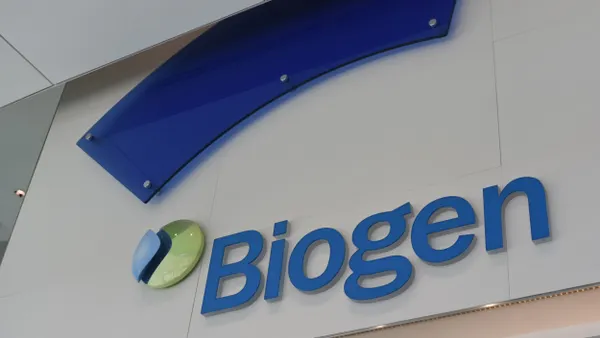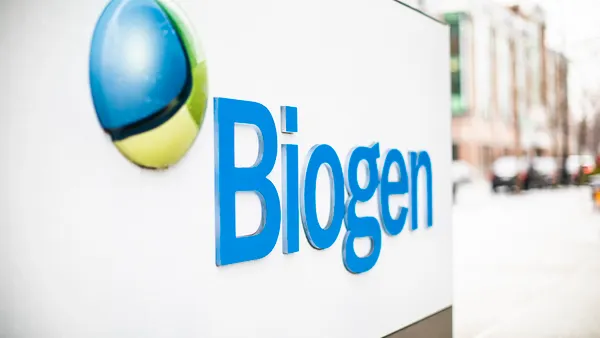Novartis could pay close to $3 billion for brain drugs developed by PTC Therapeutics, per a deal announced Monday.
At the center of the deal is an experimental medicine, PTC518, which is currently being tested as a potential treatment for Huntington’s disease in a roughly 250-person clinical trial. The main portion of that study should complete early next year. But ahead of those results, PTC has entered into an exclusive licensing agreement that gives Novartis rights to the medicine as well as related molecules.
The deal is set to close before the end of March, according to the companies. If it does, PTC will get $1 billion upfront. The New Jersey-based drugmaker could receive milestone payments worth up to $1.9 billion, in addition to royalties on any PTC518 sales outside the U.S.
Novartis CEO Vas Narasimhan said in a statement that the PTC agreement is “intended to bolster our neuroscience pipeline and reflects our strategic focus and commitment to explore new and potentially transformative approaches for neurodegenerative diseases with high unmet needs.”
PTC, meanwhile, plans to use proceeds to expand its drug development platform — which has a large focus on “RNA splicing” — and to support commercial activities. The company currently lists four other drug programs that have reached human testing and, collectively, target a range of rare illnesses, from amyotrophic lateral sclerosis to “PKU,” or phenylketonuria.
“This collaboration combines PTC's expertise in developing small molecule splicing therapies with Novartis's expertise in global development and commercialization of neuroscience therapies,” said Matthew Klein, PTC’s CEO, in the Monday statement.
The deal comes less than six months after the Food and Drug Administration allowed the PTC518 trial to resume at U.S. testing sites. In October 2022, PTC said the agency wanted “additional data” about the medicine, leading to a pause in enrollment.
Huntington’s is caused by mutations in the gene that codes for a protein called huntingtin. Research indicates this protein, which is often concentrated in the brain, normally performs a variety of helpful functions. But when it mutates, it can clump together, in turn impairing and ultimately killing nerve cells. This June, PTC said patients who took a once-daily, 10 mg dose of its medicine over the course of a year showed a 43% reduction in huntingtin protein in the blood and the fluid surrounding the brain and spine.
Positive results are rare in neuroscience, which is considered one of the most challenging areas of pharmaceutical research. Just last month, a closely watched drug from Sage Therapeutics failed in a study of Huntington’s patients. Larger firms like Novartis, Roche and Biogen have also tried in vain to bring new Huntington’s treatments forward in recent years.
Yet, there have also been signs of progress. Wave Life Sciences disclosed in June positive results from a study of a drug designed to interrupt the genetic instructions that make mutant huntingin protein. A month later, shares of UniQure spiked after the Netherlands-based biotechnology company released what one Wall Street analyst described as “interesting” and “favorable” data for a Huntington’s gene therapy.
Through its new agreement, Novartis will become responsible for the development, manufacturing and commercialization of PTC518 once the placebo-controlled portion of Huntington’s trial wraps up.
Should the drug get approved, Novartis and PTC have agreed to share U.S. profits and losses, with the former taking 60% and the latter 40%.
To Brian Abrahams, an RBC Capital Markets analyst who covers PTC, the Novartis agreement is “a good deal, any way you splice it.” Abrahams wrote in a note to clients Monday that the upfront payment is “robust” for a drug in mid-stage development, and should help PTC both continue to fund research and prepare for the launch of its PKU medicine.
PTC shares climbed just over 15% in Monday morning trading.















